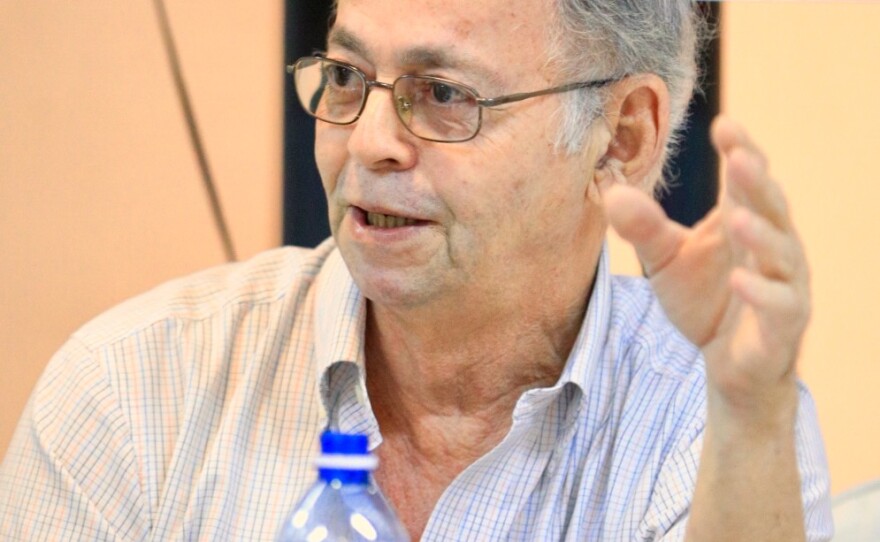No trip to Havana would be complete without trying to understand Cuba's Revolution and the rise of Fidel, and how everything changed in 1959. The Maine Public group visited two important centerpieces of Havana on Tuesday — the Museum of the Revolution, and the Cuban Art Museum. We saw examples of fascinating early art as well as surrealist and contemporary art in the collection, and heard our docent say, "If you don't understand Cuba, don't worry...we don't either!" A country of contradictions. But of course, art is a reflection of the culture, and the Cubans have great pride in what they do well — widely available access to inexpensive film, ballet, music, art, and more.
Wednesday started out with a lecture by Reuters journalist Marc Frank who illustrated the remarkable historical anomaly of Fidel Castro, emerging on the world scene in 1959 from a tiny, tiny country, and creating for 50 years a standoff with the US superpower...arguably only he could have pulled that off. And now Cuba is going to change significantly post Fidel, and with or without our US involvement. Normalization is happening, and Cuba will have to figure out how to keep the best of what they like about their country, and the entire Cuban community — here and abroad is talking about the future of their country, and that's a good thing. And Cuba will change dramatically, according to Frank.
Later we heard an informal talk by well known broadcast journalist Cristina Escobar, who anchors the evening news at 8 pm on the primary state TV station ICRT. She talked also about changes in her journalism and in the competition from social media, and described "the weekly package" an internet collection of American TV shows that households can buy under the table, illegally from Miami, but extremely popular, where Cubans can watch Colbert, and The Big Bang Theory, and HBO, and nightly news shows from Miami...true competition for her TV network and the ruling government of Cuba.
We saw one of the largest cemeteries in the world — the Christopher Colon necropolis — with massive Carrera marble statuary and stories behind the monuments. Pictures don't really do it justice. And finally a group picture at the Cuban folk artist Fuster, who created a ceramic fantasy world in his neighborhood.
We're still listening and learning and watching...










